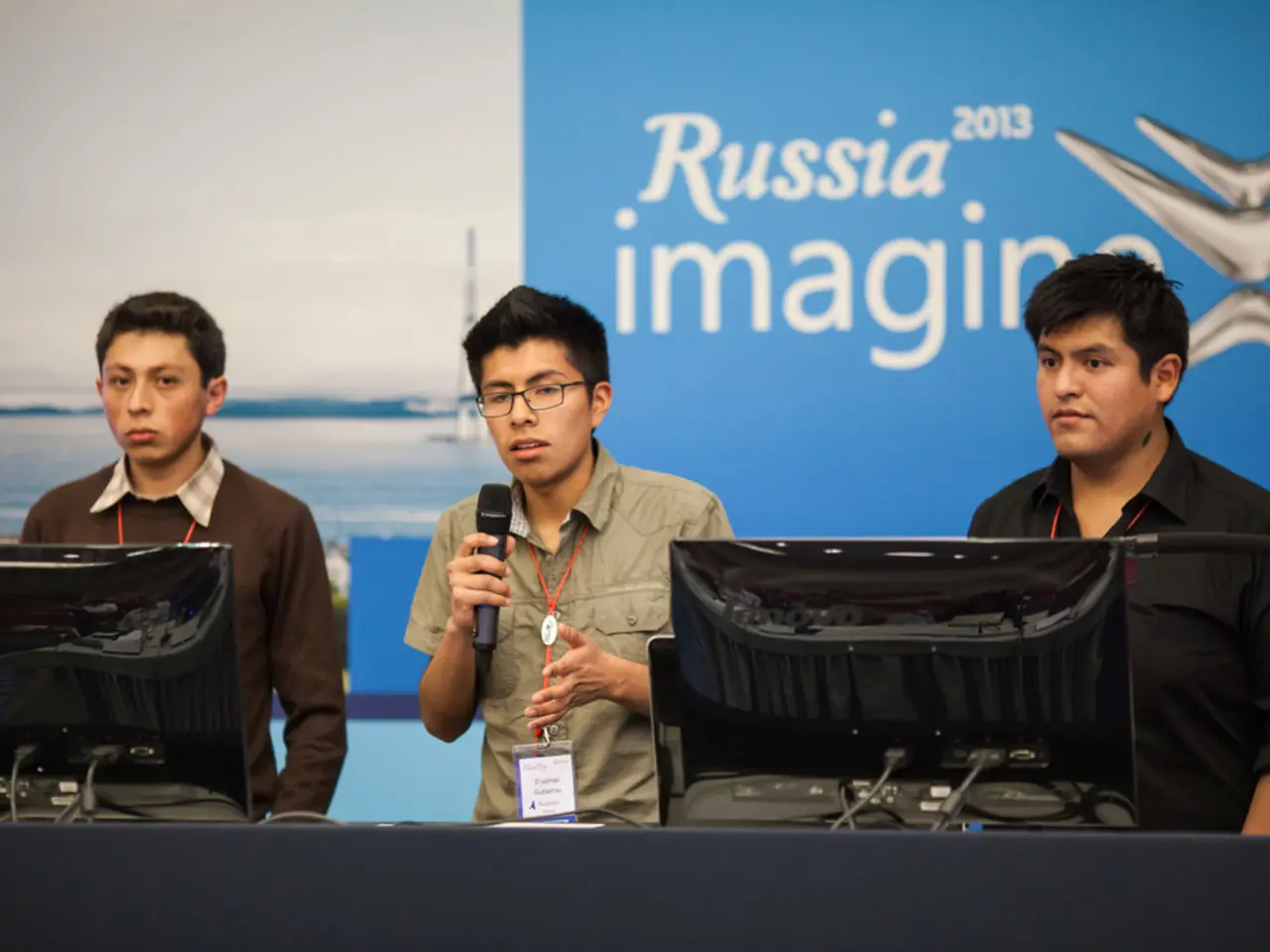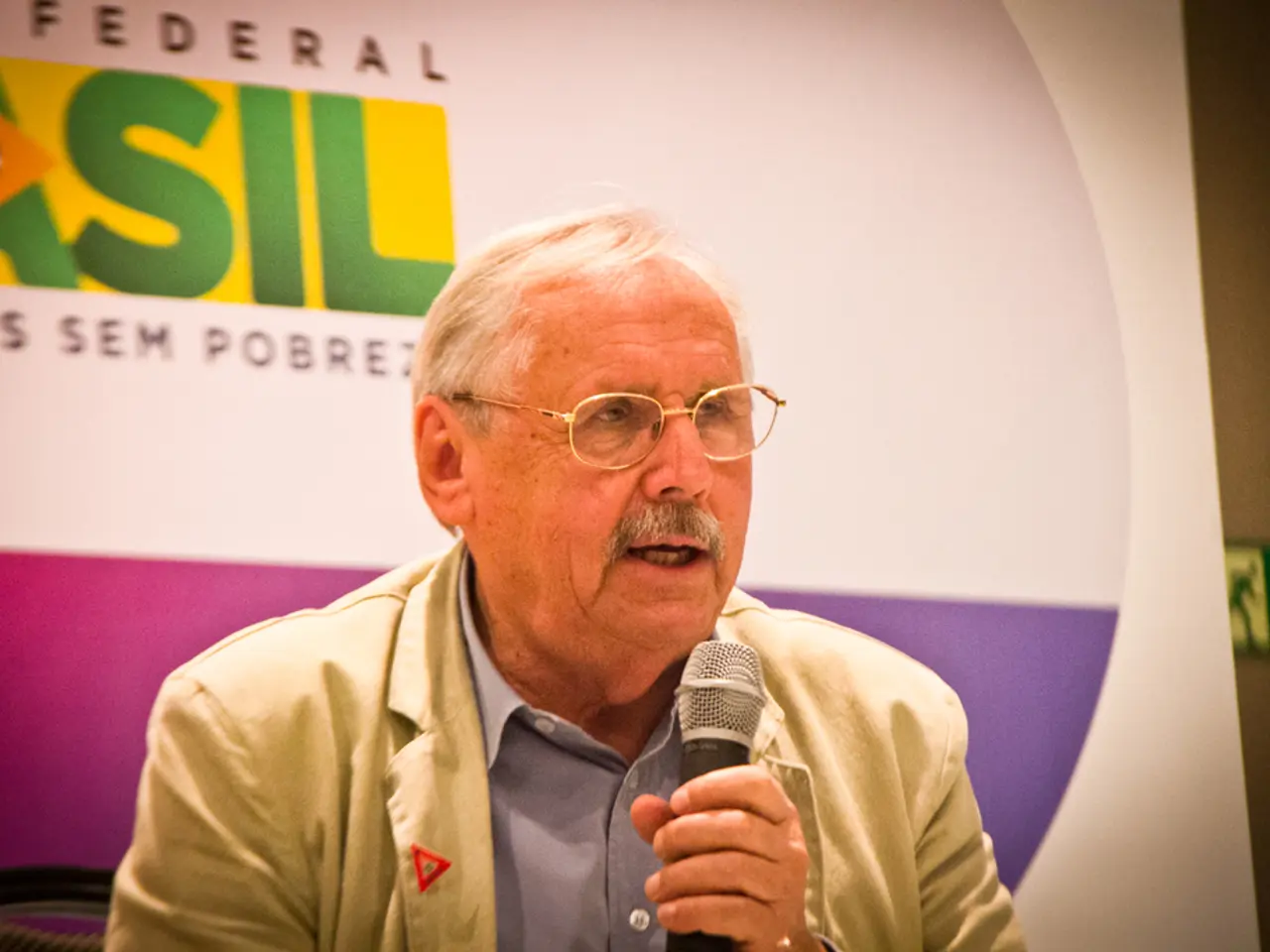Breaking News: Current Disclosure by Ex-Russian Premier Reveals Glimpse into True Nature of Putin
In the ongoing conflict in Ukraine, the impact of international measures on Russia's war funding has been a subject of intense discussion. One such measure is the oil price cap, a strategy aimed at limiting Russia's revenue from oil exports.
Large parts of the southern Ukrainian region of Zaporizhzhia, under Russian occupation, have been experiencing power and water outages due to problems in the power grid. This region, home to the two largest cities captured by Russia, Melitopol and Berdansk, has been affected by these blackouts.
In an effort to reduce Russia's funding for the war, the European Commission recently proposed lowering the oil price cap to $45 per barrel, a move that could potentially cut Russian revenues by around 27% if fully enforced. However, challenges remain in the effective implementation of this strategy. Enforcement weaknesses and rising global oil prices have allowed Russia to maintain or even increase its export revenues, limiting the effectiveness of the price cap strategy.
Mikhail Kasyanov, the former Russian Prime Minister under President Vladimir Putin, has urged the USA to join in lowering the oil price cap for Russian oil. Kasyanov, who served as Prime Minister at the time of Putin's appointment, described Putin today as a KGB agent with a distorted worldview, and mentioned three principles that were taught to him at KGB school: bribery, blackmail, and provocation. Kasyanov believes that if the USA supports European sanctions, Putin would be forced to make concessions.
Meanwhile, Ukrainian President Volodymyr Zelensky is considering exchanging his ambassador to the United States. Reports suggest that funds could be used for the delivery of American military equipment to Ukraine.
In a surprising development, North Korean leader Kim Jong Un has pledged further support for Russia in the Ukraine war. Already, North Korea has deployed more than 10,000 soldiers to Russia and provided weapons.
On the other hand, Italian Foreign Minister Antonio Tajani believes that a withdrawal from the war would create a social problem in Russia due to the high number of soldiers earning more than Russian workers.
In response to the ongoing conflict, Ukraine is investing in the manufacture of interceptor drones. The German military is expected to receive interceptor missiles for the Patriot air defense system by the end of 2026.
Former Russian Prime Minister Kasyanov also stated that a reduced oil price of $45 instead of $60 per barrel would have massive effects on Putin's war economy. Analyses show that a price cap of $30 per barrel, well above Russia’s production cost of about $15 per barrel, would have slashed Russia’s oil export revenues by approximately 40% from December 2022 to May 2025, including a 36% revenue reduction in May 2025 alone.
US President Donald Trump is considering allocating additional funds for Ukraine. Trump could seize Russian assets abroad worth approximately $5 billion. The degree of impact of the oil price cap on Russia's funding for the Ukraine war depends heavily on enforcement and global oil market conditions, making it a complex and evolving situation.
- The European Commission's proposal to lower the oil price cap to $45 per barrel is part of a broader policy aimed at limiting Russia's funding for the war in Ukraine, mirroring the community's and politics' collective stance against the ongoing conflict and its associated war-and-conflicts.
- General news outlets have reported on Mikhail Kasyanov's call for the USA to join in lowering the oil price cap for Russian oil, reflecting a common employment policy among Western nations to curb Russia's resources for its military activities, a matter of significant concern in the sphere of politics.







